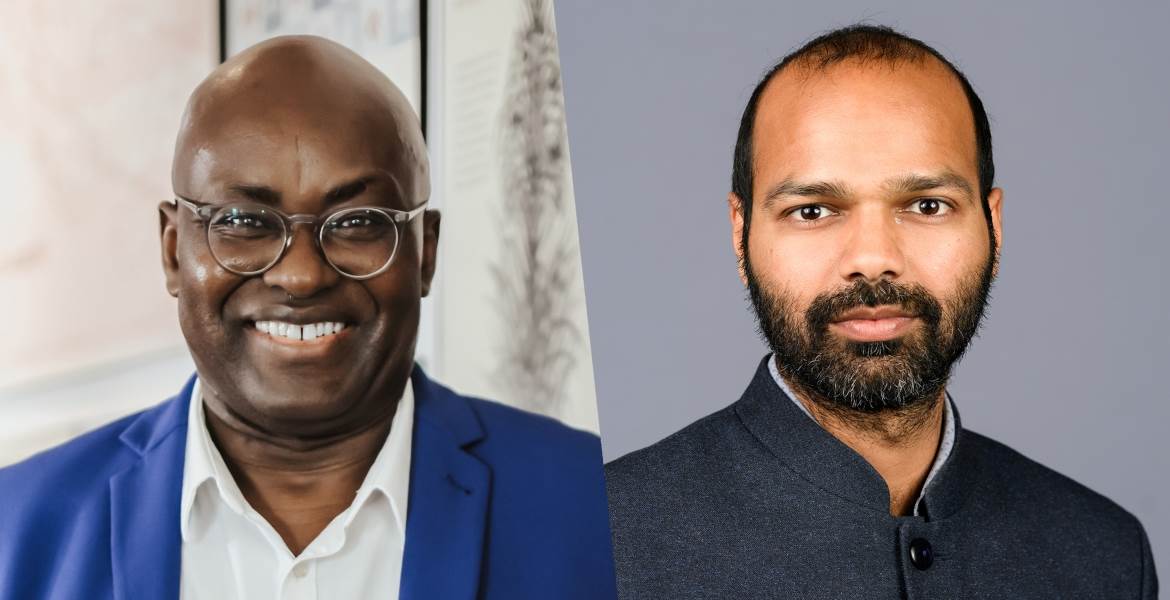Today, the Holberg Prize—one of the largest international prizes awarded annually to an outstanding researcher in the humanities, social sciences, law or theology—named Cameroonian scholar Achille Mbembe as its 2024 Laureate.
Achille Mbembe is research professor of history and politics at the Wits Institute for Social and Economic Research at University of the Witwatersrand, Johannesburg. He will receive the award of NOK 6,000,000 (approx. EUR 550,000) during a 6 June ceremony at the University of Bergen, Norway.
Mbembe is one of the most read and cited scholars from the African continent and receives the prize for his pioneering research in African history, postcolonial studies, humanities, and social science over four decades. Both as an academic and as a public intellectual, he is known for his ability to bridge existing thinking on colonialism and decolonisation with pressing questions on topics such as contemporary migration regimes, global citizenship, restitution and reparation, technology, climate change and planetary futures.
As a historian and a political philosopher, Mbembe has been most concerned about the entanglement of Europe and its former colonies. Using Africa as a point of departure for a mode of thinking that is continuous with multiple and interlocking lineages, he has revealed the extent to which the continent is a living laboratory of thought forms and ideas, a vast world of invention, imagination and creativity.
As a critical theorist, his deliberations on the global order have left an enduring mark far beyond debates on postcolonialism. Drawing on African experiences, Mbembe has played a major role in advancing thinking beyond identity and difference, particularly through concepts such as ‘necropolitics’, ‘the universal right to breathe’, or ‘the earthly community’, which speak to the ongoing struggles for recognition and repair as well as care and dignity in a racialized world.
Originally written in French, Mbembe’s books and numerous articles have been translated into 17 languages. His key books include On the Postcolony (2000/2001), Out of the Dark Night (2010/2021), Necropolitics (2016/2019), Brutalism (2020/2024) and The Earthly Community: Reflections on the Last Utopia (2022), as well as the groundbreaking Critique of Black Reason (2013/2017)—a philosophical study of the meaning of Blackness as it historically emerged. In Necropolitics, Mbembe examines how power structures wield control over life and mortality, shaping the very fabric of existence for oppressed communities.
Describing the key purpose of his work, the Laureate asks: “What are the conditions for rethinking the world in a way that opens up alternative ways of inhabiting it, of being-in-common and of nurturing a planetary consciousness?” “How to think an open future that moves beyond the history of race, colonialism and segregation with which the present is so deeply entangled,” Mbembe continues. “These questions have been at the heart of my research over the span of my career. Behind them lurks an even bigger issue, that of life futures—how can life be repaired, reproduced, sustained and cared for, made durable and universally shared?”
“Mbembe’s oeuvre goes beyond a particularized notion of decolonization to a universalist recentring of the human”, says Holberg Committee Chair Heike Krieger. “For him, this involves a dedication to facing historical truth, while learning and remembering across South-North divides.”

The Nils Klim Prize Awarded to Environmental Social Scientist in Norway
The recipient of the 2024 Nils Klim Prize was also announced today. This prize is worth NOK 500 000 (approx. EUR 44.000) and is awarded annually to a young scholar who has excelled in one of the research areas covered by the Holberg Prize. The recipient must be from, or working in, a Nordic country and under the age of 35. The two prizes will be conferred during the same ceremony at the University of Bergen on 6 June.
This year’s Nils Klim Prize is awarded to Siddharth Sareen, an Indian national, who is professor of energy and environment at the Department of Media and Social Sciences, University of Stavanger, Norway. On 1 August 2024, he will take on a new position as research professor at the Fridtjof Nansen Institute. Sareen is also professor II at the Centre for Climate and Energy Transformation, University of Bergen. Additionally, he is a board member of both the Young Academy of Norway, and of the Empowered Futures Research School which is funded by the Research Council of Norway.
Sareen receives the award for his research at the intersection between social sciences, the humanities, and technological and environmental sciences. His research includes complex topics such as sustainability and accountability, energy history, environmental justice, democracy and social inclusion.
Sareen has published dozens of articles in leading journals and edited several collections. His forthcoming monograph The Sun Also Rises in Portugal: Ambitions of Just Solar Energy Transitions (2024) explores the social and environmental consequences of Portugal’s solar energy initiatives.
Describing the key purpose of his research, Sareen says he seeks advancement of social and environmental equity and justice: “This has led me to engage with the governance of energy transitions at multiple scales and in diverse contexts,” the Laureate explains. “In an unjust world faced with competing urgencies, my work aims to inform prioritisation for more inclusive, desirable energy futures. I seek to espouse and advance innovation and actionable knowledge that can create collective benefits and common goods as we tackle this societal challenge.”
“Sareen’s work is exemplary for the global importance of critical and interactive relationships between fields of scholarship, technology, and industry in the vital search for renewable and sustainable sources of energy”, said the Nils Klim Committee Chair, Professor Ástráður Eysteinsson.